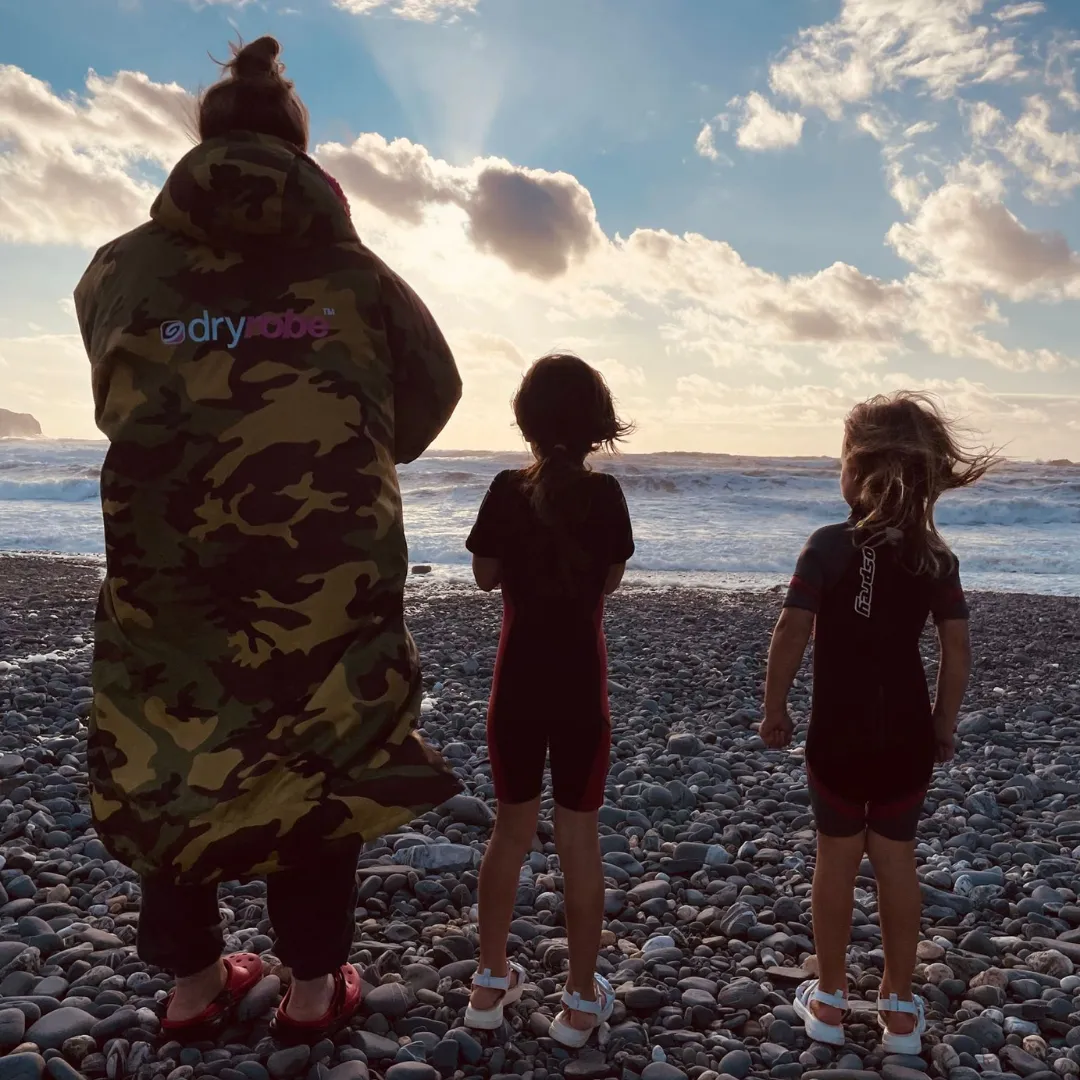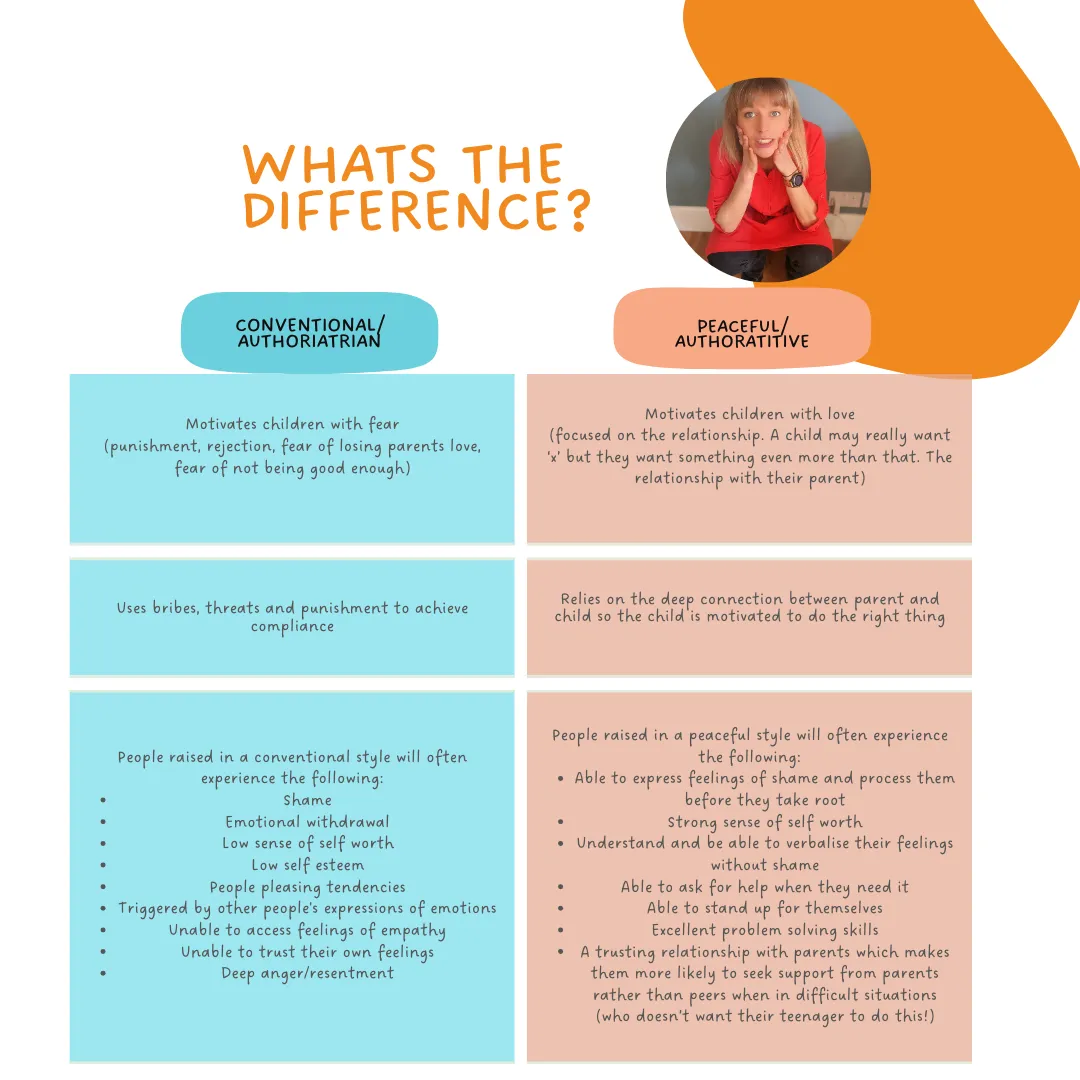What is Peaceful Parenting?

So what exactly is peaceful parenting?
Peaceful, positive, gentle, mindful, connection based…. So many names for this concept! At its core this style of parenting is authoritative. That is to say it is responsive, nurturing and focuses on connection and empathy. Boundaries are firm and clear and limits are always set with empathy.
According to the founder of Peaceful Parenting, Dr Laura Markham, it centres around 3 big ideas:
Regulating yourself
Connecting with your child
Emotion coaching your child
These three simple ideas can bring peace to your home, encourage cooperation and teamwork between parent and child and stop shouting in its tracks. Simple right? Well, yes, the concept is simple. And the work is hard. So hard.
And it works.
Study after study after study has proven that this style of parenting really does produce grounded, empathic, emotionally intelligent adults. Unfortunately the same can not be said for conventional parenting.

But it never did me any harm
Most of us were raised in a conventional style and plenty of people are ‘just fine’. Often, until they have children on their own. That is often when we have an overwhelming urge to STOP THE CRYING. We shush the baby, stick a dummy in its mouth, bounce him around, anything, anything to just STOP THE CRYING!! Then as they get a bit older and they are having a ridiculous tantrum because they said they wanted the blue plate and no, not THAT blue plate, the OTHER blue plate. You know, the one you don’t actually own, and they throw their dinner on the floor. And we rage, and we shout at them, and we send them to their rooms…
This does not make you a bad parent. This makes you a normal human being. But my guess is, one who has been raised in a conventional style. It is ingrained in us that big feelings are dangerous, unreasonable behaviour is unacceptable and must be stopped. We are in fight and flight. How can we possibly expect our child to ‘calm down’ when we are modelling the exact opposite? And furthermore, what are we actually teaching them by sending them to their rooms? That their feelings are too big, the actions too bad, and that their parent’s love is conditional on behaviour. Shame is internalised. They feel bad, they feel angry, they feel confused and alone. And for what? Doing the job of a toddler - testing limits!
So how would a peaceful parent handle this?
Let's apply the three big ideas to the blue plate scenario.
Regulate:
Before we can help our children we have to regulate ourselves. If we are not calm, we cannot calm our children. Co-regualation is huge. Sometimes calming ourselves is all it takes to calm a child. This can take anything from a few deep breaths to 10-20 minutes of implementing our various strategies. Regulation is a practice. Each time we manage to regulate ourselves we are actually rewiring our neural pathways so it is easier next time. In another article I will share some regulation techniques with you.
Connect:
Pick your child out of his high chair, chair or off the floor and give him a hug if he will let you. If not, just get down to his level and extend your arms in invitation. Now is your time to empathise. You could say something like:
‘Wow, you really wanted the blue plate. (Pause) And Mummy gave you the wrong blue plate. (Pause). That made you so cross you threw the plate. (Take a deep breath) This was hard.’ Sometimes this is enough to move him out of anger and into tears. If not, just keep going with the empathy. Your goal is to get through the anger to his tears. Let the tears flow. This was not about the plate. Your boy needed to cry. And you were there for him. Parenting win. Give yourself a high five.
Emotion Coach:
Once he’s calm you can go on to say something like.
‘Hmmm, this is quite a mess! Come on, I’ll get you a cloth and the dustpan and brush and we can clean it up together. We always clean up our own messes. After we’re done you can help me find a plate you like and we can find something else to eat.’
What have we done here?
We have helped the child through his big feelings. These feelings are almost always about something else. Often something your child is not even aware of. Throughout the day, especially if your child is in childcare, your child will be stuffing big feelings in his emotional backpack. If these feelings aren’t processed with a loving adult, they get pushed further and further down and become shame which reaps all kinds of havoc.
By crying, your child is releasing all the woes of the day and you are right there with him while he does it. After a cry, he will feel much better and much more connected to you. When you begin the emotion coaching step he is in a great place to want to comply. You are deeply connected and he helps you clean up the mess. Even the cleaning up is a happy loving act. What has he learnt? That you are always there, that you will always love him, and that we have to take responsibility for our actions.
What would he have learnt if we sent him to his room? That my parents hate me? That I’m all alone. That I am bad. That no one understands me. And my backpack is rammed full of unaddressed hurt that will keep coming out as anger through the coming day and weeks.
These techniques can be adapted right up through the teenage years and beyond. In fact, they will probably help you with your adult relationships too!
For help in how to apply this to your own household click below and let's chat!
CLICK BELOW FOR IMMEDIATE ACCESS TO FREE ADHD PARENT TRAINING VIDEOS
BOOK A FREE 20 CHAT WITH ME
© Copyright Positively Parenting. All rights reserved.
